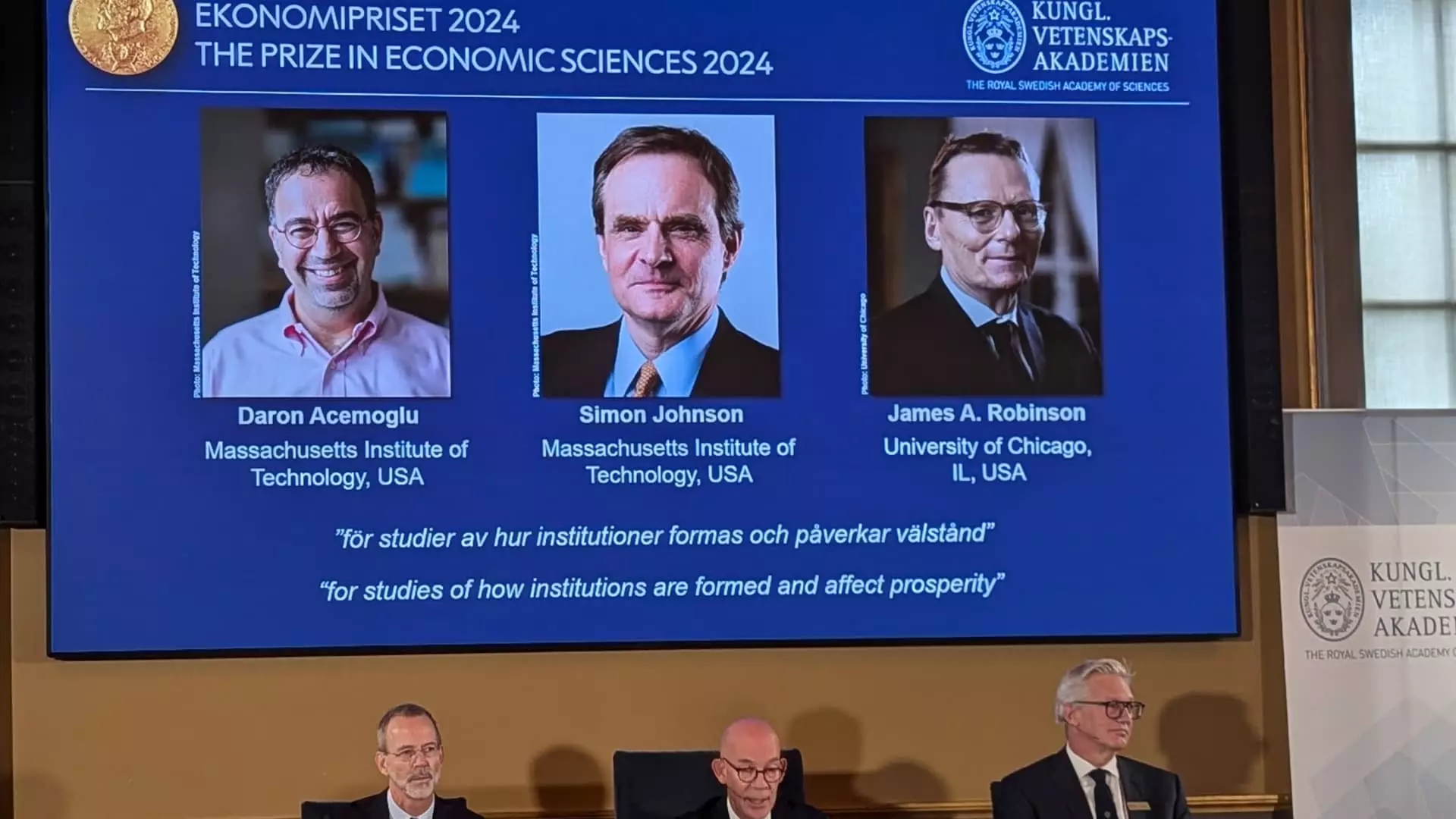In a striking recognition of scholarly contributions to understanding wealth disparity, economists Daron Acemoglu, Simon Johnson, and James Robinson have been awarded this year’s Nobel Prize in Economic Sciences. Their influential work has illuminated the intricate relationship between societal institutions and economic prosperity across nations. The Nobel committee’s acknowledgment of their research underscores a critical dialogue about the underpinnings of inequality, emphasizing that countries with ineffective and exploitative institutions tend to stagnate economically. This award shines a light not only on their individual accomplishments but also on the wider implications of effective governance for sustainable development.
Acemoglu and Robinson, along with Johnson, have explored a compelling narrative about the origins of wealth and poverty, most notably captured in their best-selling book, “Why Nations Fail: The Origins of Power, Prosperity, and Poverty.” Their exploration extends beyond mere economic statistics, probing into historical contexts that reveal how past injustices perpetuate contemporary inequalities. Their research details how the colonial legacies have shaped the political and economic frameworks of various nations, resulting in a capitalist framework that continues to favor the wealthy.
The alarming statistic highlighted by the Nobel committee—the richest 20% of countries being around 30 times wealthier than the poorest 20%—further accentuates the urgency of their findings. Unpacking the mechanisms behind this disparity allows for a more comprehensive understanding of global economic systems, suggesting that the fundamental structures of governance can either facilitate equitable growth or serve as barriers to progress.
The Role of Political Institutions in Economic Outcomes
The laureates argue that strong and inclusive institutions are paramount for fostering an environment conducive to economic growth. Societies entrenched in the exploitation of their populations through weak legal systems and corrupt governance often see stagnation and decline. This connection between governance and economic performance is critical; without the right institutions, economic benefits are unlikely to materialize, leaving entire nations trapped in cycles of poverty.
Jakob Svensson, a professor at Stockholm University, aptly pointed out during the Nobel announcement that the legacy of colonialism continues to haunt many nations, creating a persistent gap between the rich and the poor. This understanding implies that merely injecting capital or resources into these economies is insufficient. Instead, robust institutional reforms are essential to ensure that economic systems become equitable, thereby enabling lasting change.
Acemoglu, Johnson, and Robinson’s pioneering work not only informs academic discourse but also has profound implications for policymakers. Their research advocates for a multifaceted approach to economic reform that considers historical injustices and strives for institutional integrity. To combat global inequality effectively, it is imperative to prioritize policies that enhance governance structures, protect property rights, and promote inclusive institutions, particularly in regions affected by colonial exploitation.
As nations grapple with the complexities of globalization, understanding the roots of inequality through the lens of institutional quality becomes more relevant than ever. The call for reforms aimed at developing transparent and accountable governance frameworks is a vital component of this discussion.
Reflecting on the Future of Economic Thought
The Nobel Prize awarded to Acemoglu, Johnson, and Robinson reinvigorates the conversation about economic inequality, a timeless issue that remains alarmingly relevant. Their work serves as a reminder that wealth disparity is not merely the result of market dynamics but is deeply intertwined with historical contexts and institutional frameworks.
As we move forward, the economic community is challenged to integrate these insights into both theoretical frameworks and empirical research that address the pressing challenges of our times. It raises questions about how we can leverage institutional reforms to bridge the wealth gap, ensuring that the prosperity of nations does not remain a privilege of the few but becomes an achievable goal for all.
The journey to understanding global economic disparities is ongoing, yet the recognition of these scholars through the Nobel Prize serves as a beacon of hope for more equitable futures.


Leave a Reply